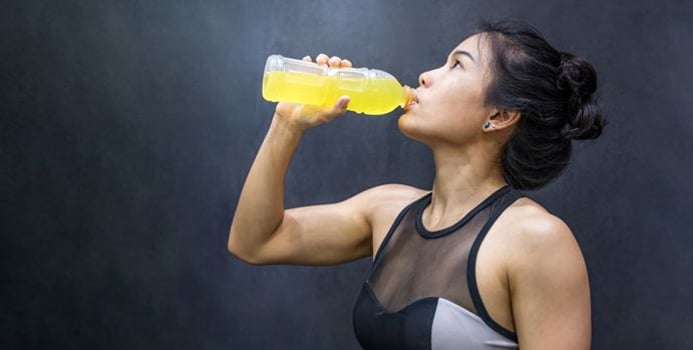Sports drinks are fantastic because they aid workouts by giving the body the fluids it needs to remain hydrated and replenish electrolytes. You'd agree with this statement, right? However, there is now an abundance of different drinks being sold and marketed as "sports drinks," and they are filled with carbohydrates and sugar.
In the '90s sports drinks became really big thanks to clever advertising, like the "Be like Mike" ads featuring NBA superstar, Michael Jordan. True sports drinks (like Gatorade, Cytomax, and Allsport) are helpful during intense workouts, or prolonged, vigorous physical activities because they can give you more energy and contain potassium, magnesium, sodium, and calcium — also, you are bound to burn more sugar during your workout than what can be found in these drinks.
However, if you aren't a professional athlete who has just endured a grueling workout, then you do not need the excess sugar found in these drinks, in fact, they could reportedly be doing more harm than good. Teens and adolescents especially should never drink sports drinks, according to The American Academy of Pediatrics, because the excess calories from the sugar could result in obesity and tooth decay.
Elaborating on this point, researchers in a study by the British Journal of Sports Medicine found that the most common dental problems that athletes suffer from include tooth decay, gum disease and enamel erosion — which can be linked to their sugar consumption and the levels of acidity.
In addition to avoiding normal sports drinks, you should also not be consuming energy drinks. Chris Carmichael, who heads a training facility for personal coaches, told WebMD that people should be avoiding drinks with caffeine after a workout because these drinks do not contain the electrolytes needed to replenish what you lost through sweat.
So, what should you be drinking after a workout? Water!
[Image via Shutterstock]



